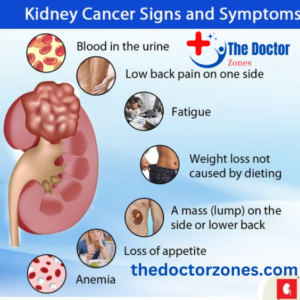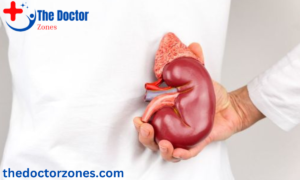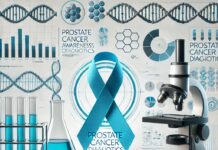Kidney Cancer: How I Found Out I Had Kidney Cancer
Kidney cancer starts when cells in the kidney tissue undergo abnormal changes and proliferate uncontrollably, forming a mass known as a tumor. If the cancerous tumor spreads to other organs or tissues, this is called metastasis.
Who is Affected?
Kidney cancer is most common in individuals aged 65 to 74, with men being twice as likely to develop the disease compared to women. It is also more prevalent among Native American and Black populations. Although rare in children, about 500 to 600 cases of Wilms tumor (a type of kidney cancer) are diagnosed annually in the U.S. Read about How What is Kydae Cancer?
Types of Kidney Cancer
- Renal Cell Carcinoma (RCC): The most frequent type, making up 85% of kidney cancer cases. It usually begins as a single tumor in one kidney but can affect both kidneys. The most common subtype is clear cell renal cell carcinoma (ccRCC).
- Transitional Cell Carcinoma: Accounts for 6% to 7% of kidney cancers. It typically starts in the renal pelvis, where the ureter meets the kidney, and can also appear in the ureters or bladder.
- Renal Sarcoma: The rarest form, representing about 1% of kidney cancers. It originates in the connective tissues of the kidneys and can spread to nearby organs and bones if untreated.
- Wilms Tumor: The most common kidney cancer in children, constituting about 5% of kidney cancer cases.
Symptoms and Causes

Signs of Kidney Cancer
In its early stages, kidney cancer may not show any symptoms. As the tumor grows, symptoms may become more noticeable, including:
- Blood in the urine (hematuria)
- A lump or mass in the kidney area
- Flank pain
- Fatigue
- General malaise
- Loss of appetite
- Weight loss
- Low-grade fever
- Bone pain
- High blood pressure
- Anemia
- Elevated calcium levels
Primary Causes and Risk Factors
While the exact cause of kidney cancer is unknown, several risk factors may increase the likelihood of developing the disease:
- Smoking: Increased risk with longer duration of smoking.
- Obesity: Higher risk associated with excess weight.
- High Blood Pressure: Linked to increased risk of kidney cancer.
- Family History: Higher risk for those with a family history of kidney cancer.
- Radiation Therapy: Slightly increased risk for women who have had radiation for reproductive organ cancers.
- Genetic Mutations: Certain genetic changes can elevate the risk.
- Long-term Dialysis: Used when kidneys aren’t functioning properly, increasing cancer risk.
- Tuberous Sclerosis Complex: A genetic disorder causing tumors in various organs.
- von Hippel-Lindau Disease (VHL): Inherited disorder raising the risk of kidney cancer due to noncancerous tumors in blood vessels.
Seriousness of Kidney Tumors
Tumors can be benign (noncancerous) or malignant (cancerous). Benign tumors are generally smaller and do not spread. Regardless of the tumor type, prompt treatment is important to prevent complications. Also read the Article: Is Low Potassium a Sign of Cancer
Diagnosis and Tests
Diagnostic Procedures
To diagnose kidney cancer, your healthcare provider will review your medical history and conduct a physical exam, often followed by several tests:
- Urinalysis: Checks for blood in the urine.
- Blood Tests: Evaluate red blood cell count, electrolytes, and kidney function.
- CT Scan: Produces detailed images of the body, often with contrast dye.
- MRI: Uses magnets and radio waves to create images of internal structures.
- Ultrasound: Uses sound waves to detect tumors.
- Renal Mass Biopsy: Involves extracting a tissue sample from the tumor to check for cancer cells.
Staging of Kidney Cancer
Staging describes the extent of cancer spread and is crucial for treatment planning:
- Stage I: Tumor is 7 cm or smaller, confined to the kidney.
- Stage II: Tumor is larger than 7 cm but remains in the kidney.
- Stage III: Tumor has spread to nearby blood vessels or lymph nodes.
- Stage IV: Tumor has spread to distant organs or lymph nodes.
Tumors are also graded based on cell appearance and growth rate. High-grade tumors grow and spread faster than low-grade tumors.
Management and Treatment
Treatment Options
Treatment for kidney cancer varies based on the tumor’s stage, grade, and the patient’s overall health. Options include:
- Surgery: The primary treatment, including partial nephrectomy (removal of part of the kidney) or radical nephrectomy (removal of the entire kidney and surrounding tissue).
- Ablation: Cryoablation (freezing) and radiofrequency ablation (heating) are alternatives for those ineligible for surgery.
- Radiation Therapy: Used for symptom relief, especially if surgery isn’t an option.
- Targeted Drug Therapy: Targets specific cancer cell characteristics to inhibit growth.
- Immunotherapy: Boosts the immune system to better fight cancer cells.
- Chemotherapy: Not typically used as a first-line treatment but may be considered if other therapies fail.
Prevention
Reducing Risk
While kidney cancer prevention isn’t guaranteed due to the unknown cause, reducing risk factors can help. Avoid smoking and manage conditions like high blood pressure, diabetes, and obesity.
Outlook / Prognosis
Prognosis
The outlook for kidney cancer depends on the type, stage, and overall health of the patient. Early detection generally improves the chances of successful treatment and recovery.
Curability
Kidney cancer is often curable when detected early, before it invades beyond the kidney’s outer layer.
Living With Kidney Cancer
When to Seek Help
If you experience symptoms such as side pain, a lump near your kidney, or blood in your urine, consult your healthcare provider immediately for a diagnosis and treatment plan.
Questions for Your Healthcare Provider
Be proactive in understanding your condition. Consider asking:
- What type of kidney cancer do I have?
- Where is the tumor located?
- Has the cancer spread?
- What is the stage of my cancer?
- What treatment options are available?
- What is my prognosis?
How I Found Out I Had Kidney Cancer
kidney cancer is found when a person has an imaging test, such as ultrasound, magnetic resonance imaging (MRI), or computed tomography (CT) scan (see Diagnosis), for another reason. In its earliest stages, kidney cancer causes no pain.
Kidney cancer is often discovered incidentally during imaging tests like ultrasounds, MRIs, or CT scans conducted for unrelated reasons. Recognizing kidney cancer early can be challenging, as it typically doesn’t cause pain in its initial stages. Here’s my personal story of kidney cancer detection and the journey from subtle symptoms to a life-changing diagnosis.
Early Signs of Kidney Cancer
Unexplained Fatigue It all started with a constant feeling of fatigue. Despite adequate rest, I felt drained and lethargic. This was my body’s first sign that led to kidney cancer discovery.
Back Pain A persistent ache in my lower back soon followed. Initially attributed to stress, this nagging pain made me wonder if there was a deeper issue at play.
Changes in Urination Patterns Noticing subtle changes in urination patterns, such as frequent bathroom trips and changes in urine appearance, raised red flags. These symptoms pointed towards an underlying problem that needed attention.
Journey to Kidney Cancer Diagnosis
Visiting the General Practitioner With growing concerns, I visited my general practitioner. I provided a comprehensive account of my symptoms, leading to a preliminary assessment.
Referral to a Specialist The GP referred me to a urologist, marking a pivotal step in my kidney cancer diagnosis journey. Urologists specialize in organ-specific issues, crucial for uncovering the root cause of my symptoms.
Diagnostic Tests A series of diagnostic tests followed, including blood work and imaging studies. These tests played a crucial role in narrowing down the possibilities and preparing for the impending revelation.
How I Learned I Had Kidney Cancer
Meeting with the Urologist During the consultation, the urologist delivered the news that would reshape my life: I had kidney cancer. The term “kidney cancer” echoed in the room, leaving me grappling with a whirlwind of emotions.
Understanding the Diagnosis The diagnosis, while shocking, was the beginning of a battle. Understanding the type and stage of the cancer became essential for formulating a tailored treatment plan.
Treatment Options and Decision-Making

Surgery Surgery emerged as the primary treatment option. The process of removing the cancerous tissue was intricate and came with its own set of challenges.
Other Treatment Modalities While surgery was the cornerstone, complementary treatments like chemotherapy and immunotherapy were discussed. This illustrated the multidimensional nature of cancer care.
Decision-Making Process Navigating the labyrinth of treatment options required informed decision-making. Consulting with healthcare professionals and seeking second opinions paved the way for a comprehensive approach.
Navigating Emotional Challenges
Support Systems Surrounded by a network of family and friends, their unwavering support became a lifeline. The importance of emotional sustenance during this time cannot be overstated.
Coping Mechanisms Developing coping mechanisms was crucial. From mindfulness practices to engaging in joyful activities, the emotional healing process began to unfold.
Mental Health Importance Acknowledging the impact on mental health was vital. Integrating mental health support into the overall care plan fostered resilience and emotional well-being.
Lifestyle Changes and Recovery
Dietary Adjustments Post-diagnosis, a reevaluation of dietary habits became imperative. A nutrient-rich diet not only supported recovery but also contributed to overall well-being.
Exercise Routine Incorporating exercise tailored to individual capacities played a pivotal role. Physical activity enhanced energy levels and promoted a sense of normalcy.
Follow-up Care Post-treatment, diligent follow-up care became non-negotiable. Regular medical check-ups and screenings ensured that any potential recurrence was promptly addressed.
Advocacy and Awareness
Sharing Personal Story Bearing witness to my journey, I felt compelled to share my story. Advocacy became a vehicle for raising awareness and erasing the stigma surrounding kidney cancer.
Encouraging Health Screenings Emphasizing the importance of routine health screenings emerged as a central theme. Early detection, as proven in my case, can be a game-changer in the realm of cancer.
Supporting Others with Kidney Cancer Actively participating in support groups and initiatives allowed me to extend a helping hand to others facing a similar battle. A shared understanding fostered a sense of community.
The Road to Recovery
Monitoring Health Progress The road to recovery is marked by milestones. Regular monitoring of health progress, both physical and emotional, provided a roadmap for the journey ahead.
Celebrating Milestones Each milestone, whether big or small, became a cause for celebration. From completing treatments to returning to daily activities, each step forward was a victory.
Future Outlook As I stand on the brink of a new chapter, the future holds promise. While the specter of cancer lingers, the resilience cultivated through this journey serves as a beacon of hope.
Conclusion
In the tapestry of life’s uncertainties, a cancer diagnosis may be an unexpected thread. My journey with kidney cancer, though challenging, illuminated the resilience of the human spirit. Through awareness, advocacy, and a robust support system, the road to recovery becomes a testament to the indomitable will to live.
FAQs
Q. Is kidney cancer hereditary? While some cases have a genetic component, the majority of kidney cancers are not hereditary. Regular screenings can aid in early detection.
Q. What role does diet play in kidney cancer recovery? A balanced and nutrient-rich diet is essential for recovery, supporting the body’s healing processes.
Q. How often should post-treatment check-ups occur? The frequency of post-treatment check-ups varies but is generally more frequent in the initial years. Consult with your healthcare team for personalized guidance.
Q. Can emotional well-being impact cancer recovery? Yes, mental health is integral to the overall recovery process. Seeking support and employing coping mechanisms are crucial.
Q. Are there alternative therapies for kidney cancer? Complementary therapies like acupuncture or meditation may complement traditional treatments, but consult with healthcare professionals before incorporating them.








